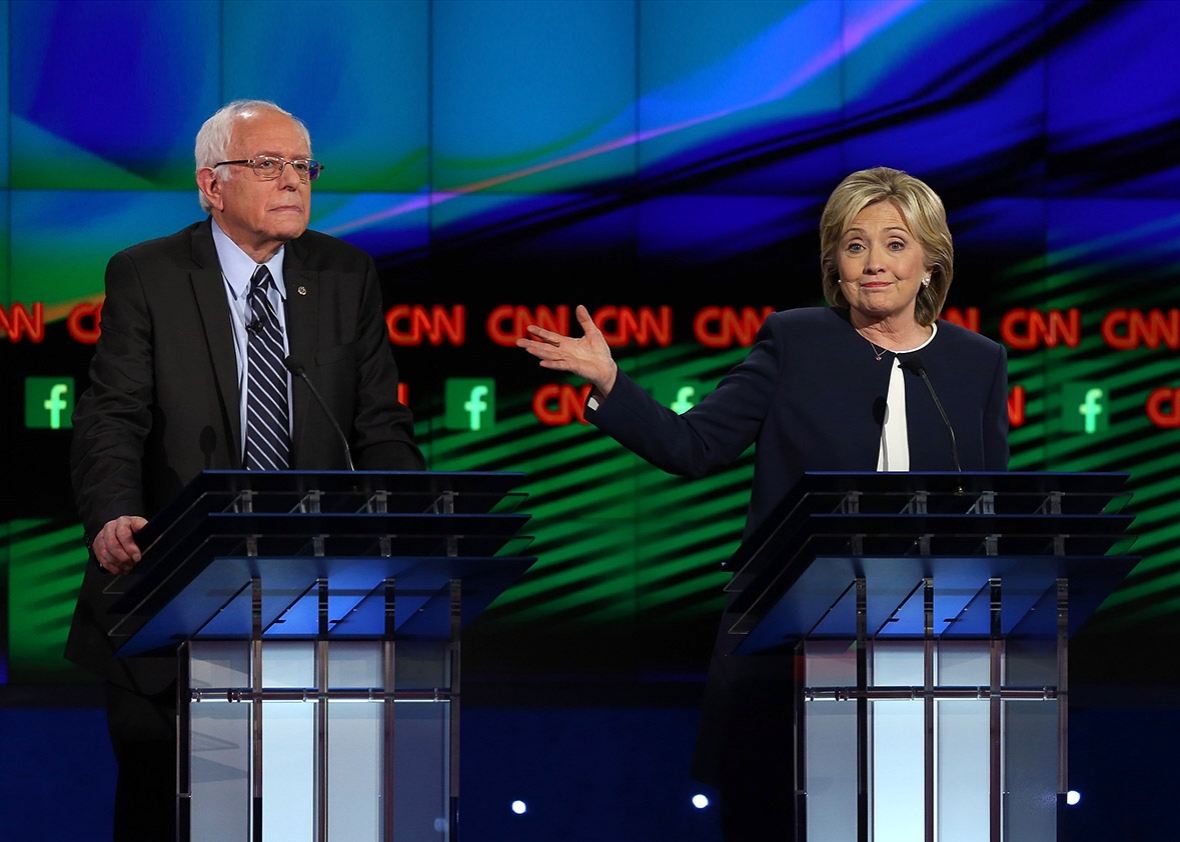Sunday [February 21, 2016], Bernie Sanders traveled to West Columbia, South Carolina as he joined some 300 patrons of a historically Black Baptist church during a post-service dinner.
The stop was his first since losing the vote to Hillary Clinton in Nevada, and the first among many before voters in South Carolina take to the polls on February 27, 2016.
Making his way around the room, Senator Sanders greeted everyone and shook hands with potential voters before he was granted a few minutes to give a few words to the crowd.
It was when he took the stage to deliver his speech that the response he received fell short of what was typically expected. While some were actively listening, others continued their treks to the buffet line, and other decided to pay more attention to the Michigan-Maryland basketball showing on of the room’s screens.
While he struggled to capture their attention for a while, he managed to garner a large applause line when mentioning President Obama.
“We have an economy today that thankfully is a lot better than it was seven years ago, thanks to President Obama,” the Vermont senator said while still noting that there is still much to do in the combat against poverty.
It was back in 2008 that President Obama took hold of a strong victory over Hillary Clinton thanks to the more than 50 percent African-American Democratic electorate.
Now, polls suggesting that Clinton is up ahead in the Black community in South Carolina could prove to be a problem for Bernie Sanders, not only in the Palmetto State, but in every other state where the minority community is equipped with significant voting power.
Yet still, a proper education on the voting power of the African-American community remains untaught. It seems that television networks prefer to ask pundits and each other about the the candidates and their efforts to grasp the Black vote rather than asking the Black voters themselves.
With more than 95 percent of Black voters voting Democrat, the fact of the matter is that any Democratic hopeful with White House dreams won’t make it past the front door without invoking the Black vote.
While both Hillary Clinton and Bernie Sanders have loved recounting the stories of their youth, spilling out their experiences of marching and even incarceration, it’s all a bit irrelevant now.
They both have had no problem addressing unemployment gaps, inefficiencies and inequality in the criminal justice system, and great economic disparity. However, what we’d all like to see is more of a focal pint on all these issues’ direct correlation to race, more specifically, to being Black.
“People ask me all the time about the election and whether injustices will be addressed and if candidates will offer real solutions. The conversation on race, and inequality, can be difficult for some – but it is a conversation we must have.” said Rev. Maurice Harden of New Mount Olive AME Zion Church of Rock Hill, South Carolina.
“Blacks face a different set of problems – high incarceration rates, police racial profiling and interaction with police that too often ends with bullets, high unemployment among young Black men,” he continued as he spoke with Rock Hill’s Herald.
During both of President Obama’s presidential bids, the insurgence and rise of the levels of Black voters hit all-time highs. The real question surrounds what these voters will do now.
While a general consensus is showing more and more of a split decision between the two among African-American voters, polls still show Hillary Clinton moving past Bernie Sanders.
But, it seems that Hillary Clinton’s support has been set to ‘default’ due to the fact that her husband is former President Bill Clinton and that she seems to be a close ally and friend of President Obama, with all her experience as a First Lady and Secretary of State aside.
